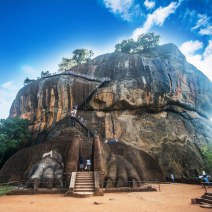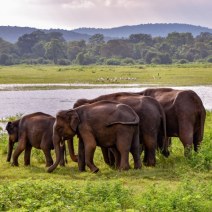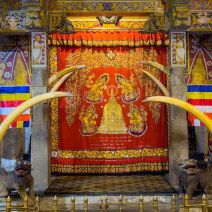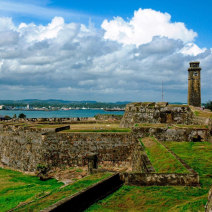Sri Lanka Travel Guide
Sri Lanka is a destination that blends rich culture, ancient history, and stunning landscapes, offering an array of unforgettable experiences.
Officially known as the Democratic Socialist Republic of Sri Lanka, this island nation lies in the Indian Ocean, just off the southern tip of India. With a population of around 22 million, its commercial capital is Colombo, while the cultural heart of the country is the sacred city of Kandy.
Sri Lanka boasts a fascinating history shaped by centuries of Buddhist heritage, colonial influences from the Portuguese, Dutch, and British, and vibrant traditions. Renowned figures like King Dutugemunu are celebrated for their contributions to unifying the island and fostering a strong cultural identity. While the island’s history includes periods of conflict, today, Sri Lanka is celebrated for its diversity, hospitality, and resilience, making it an alluring destination for travellers.
We've outlined some general information that may be helpful to you when planning your next holiday to Sri Lanka.

Time Zone & Currency
Sri Lanka follows a single time zone, which is five and a half hours ahead of Greenwich Mean Time (GMT). The currency used in Sri Lanka is the Sri Lankan Rupee (LKR).

Weather in Sri Lanka
Sri Lanka's tropical climate varies by region, with the southwest monsoon from May to September and the northeast monsoon from October to January.

Reading For Your Trip To Sri Lanka
The Village in the Jungle by Leonard Woolf
Running in the Family by Michael Ondaatje
Elephant Complex: Travels in Sri Lanka by John Gimlette
Best time to go to Sri Lanka
Sri Lanka’s weather varies by region due to its monsoon patterns. The southwest coast and central hill regions are best visited from December to March, while the east and northern regions are ideal from May to September. Despite the monsoons, much of Sri Lanka remains warm year-round, with pleasant weather across the island at different times of the year.
Top Tourist Attractions In Sri Lanka
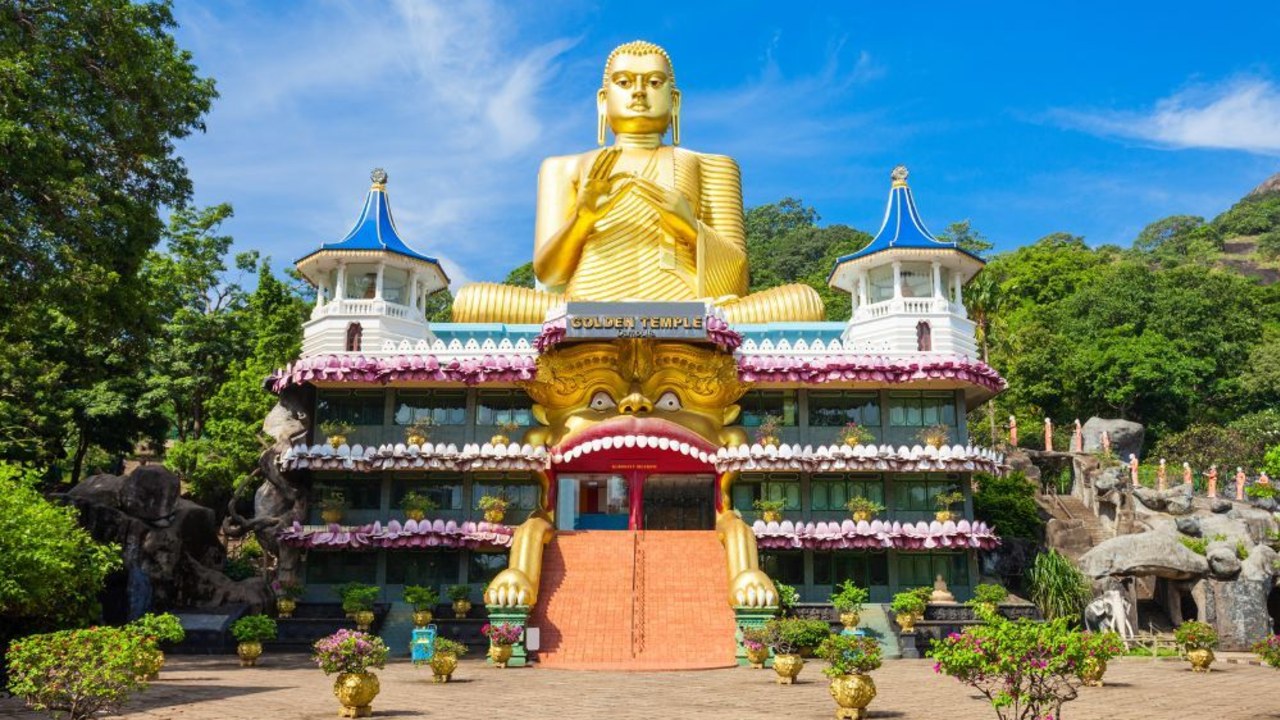
10 Best Things to Do in Sri Lanka
Sri Lanka offers stunning landscapes, beautiful beaches, rich wildlife, and historic sites. Whether you love nature, history, or adventure, this island has it all. Discover the highlights awaiting you on our Sri Lanka holidays.
Food and drink in Sri Lanka
Due to its strategic location in the Indian Ocean, Sri Lanka offers a delicious hybrid of western and eastern flavours. Some must try dishes include:
- Rice and Curry: A staple meal featuring steamed rice served with an assortment of vegetable, fish, or meat curries, flavoured with fragrant spices.
- Hoppers (Appam): Bowl-shaped pancakes made from fermented rice flour, often served with an egg or savoury accompaniments like sambols.
- Kottu Roti: A street food favourite, made by stir-frying chopped flatbread with vegetables, egg, and meat, creating a deliciously spicy dish.
- Pol Sambol: A fresh coconut relish mixed with chilli, lime, and onions, perfect as a side dish with many meals.
- Fish Ambul Thiyal: A tangy and flavourful fish curry cooked with a unique souring agent called goraka.
Sri Lanka also boasts a rich tradition of tea, being one of the world’s largest tea producers. From the famous Ceylon tea to local brews enjoyed with milk and sugar, tea is a cultural symbol in Sri Lanka.
Sri Lanka Travel Guide FAQs
Can you give a brief history of Sri Lanka?
Sri Lanka has a rich and complex history shaped by its strategic location in the Indian Ocean. Originally inhabited by indigenous groups, the island saw the rise of ancient kingdoms like Anuradhapura and Polonnaruwa, which flourished with Buddhist influences. Sri Lanka was a vital trade hub, attracting traders from India, Arabia, and Europe.
The arrival of colonial powers—Portuguese, Dutch, and British—over several centuries deeply influenced its culture and politics. British rule, established in 1815, saw major economic developments like tea plantations but also sparked independence movements. In 1948, Sri Lanka gained independence, transitioning into a republic in 1972.
The late 20th century was marked by ethnic tensions between the Sinhalese majority and Tamil minority, culminating in a civil war that lasted from 1983 to 2009. Today, Sri Lanka is celebrated for its cultural heritage, natural beauty, and resilience as it rebuilds and progresses.
Do I need a holiday visa for Sri Lanka?
All visitors to Sri Lanka require a Tourist Visa. It is each individual’s own responsibility to secure a Tourist Visa. The Sri Lankan Electronic Travel Authorization System for Tourist Visas is an official authorization for a short visit to Sri Lanka. In line with the Sri Lanka Government ETA regulations, ETA holders will be issued 30 days short visit visa at the port of entry in Sri Lanka.
Is English widely spoken in Sri Lanka?
Yes, English is widely spoken in Sri Lanka, particularly in urban areas, among the educated population, and in business and tourism sectors. However, the country's official languages are Sinhala and Tamil, which reflect its cultural diversity.
Useful Links
- For up-to-date information regarding entry into Sri Lanka please see: www.gov.uk
- Official Sri Lanka Tourism Board: www.srilanka.travel
